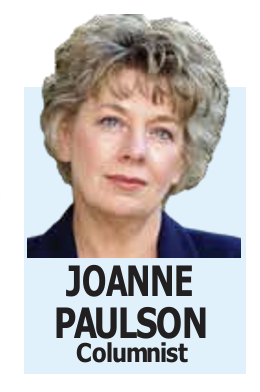
Do you remember being, say, 13? Without getting too far into the personal weeds, I remember who I was then, way back when. I remember being captivated by mythology as presented, dramatically, by a great teacher. I remember the social whirl that included making (as it turned out) lifelong friends. I remember the fear of going to high school, the desire to fit in. I was (and remain) a unique soul with my very own brain. And so, I am willing to bet, were you. And so, I am willing to bet, are the children and youth of today. Which brings me to the Government of Saskatchewan’s Parents’ Bill of Rights, aka the pronoun policy, which passed on Oct. 20. Very briefly, the policy (among other things, like protecting the government from being sued over this) requires teachers to seek parent or guardian permission to allow students under age 16 to change their preferred name or gender pronouns used at school.
Various groups became rightfully exercised about this policy and, dominantly via UR Pride, took the issue to the Court of King’s Bench. Justice Michael Megaw granted an injunction to stop the Saskatchewan pronoun policy until it could be evaluated for legitimacy and constitutionality. He went further, saying this law could cause “irreparable harm.” Premier Scott Moe immediately called his decision “judicial overreach” (ironic, since he clapped his hands with glee when the Supreme Court overturned the federal government’s Impact Assessment Act) and soon declared that he would invoke the notwithstanding clause of the Charter of Rights and Freedoms. This allows legislatures or Parliament to override sections of the Charter for a five-year term. Which is bizarre when it comes to rights and freedoms, but there you have it. The Moe government’s argument is that the policy is intended to engage parents in the education of their children. “
This policy is designed to be an inclusive policy,” Moe has said repeatedly. “It’s designed to include parents in their children’s education and what is happening in their children’s school.” But this is not about curriculum or fees or after-school sports programs. This is about identity and safety, which do not entirely fall under Moe’s education inclusion banner, per se. He has also argued that there are counselling supports in place for children struggling with, I assume, identity, bullying, sexuality, future educational opportunities and all the other things kids are dealing with. That’s very nice, but the problem here is that there are not nearly enough counsellors, so his argument is entirely specious. In any case, his defence that the policy is “designed to include parents” is not the point. Trampling children’s rights in the interest of political sway with right-wing voters is the point. The point, too, is that children are independent souls (I am not referring to their financial status) and unique human beings, while also being far more vulnerable than adults. The point is that not all children are safe at home and must be protected as much as possible elsewhere, dominantly in schools. That is society’s job. Even children who are safe at home have found solace by reaching the ear of a kind teacher. The point is that young people have not been consulted. If they have not discussed or revealed their gender identities (or anything else) with their parents (or have and were rebuffed, or worse) we must ask why that is. Are they living in abusive environments? Homes in which they are not accepted for who they are?
Disallowing kids to be who they are flies in the face of their rights. Here is what the Convention on the Rights of the Child has to say about this. “Children should not be discriminated against based on their race, religion or abilities; what they think or say; the type of family they come from; where they live, what language they speak, what their parents do, what gender they identify with, what their culture is, whether they have a disability or whether they are rich or poor.” Justice Megaw’s injunction reflects this view, as the pronoun policy does not. LGBTQ2S+ support groups, the Children’s Advocate, teachers, Human Rights Commissioner Heather Kuttai (who resigned over this policy), the Saskatchewan Trial Lawyers Association, a coalition of legal scholars and a lot of young people have warned Moe about the damage this policy could do, both/either to children and to the judicial process. Moe’s description of Megaw’s ruling as “judicial overreach” is ridiculous, since the judiciary is indeed in place to interpret our laws free from pressure exerted by legislative bodies. This mess must be decided in the courts and reach the eyes of the Supreme Court of Canada.
Returning the issue to the courts is a complex, and there is little clarity from what I’ve read on how this might be accomplished. However, I’ve heard that there are options for fighting the notwithstanding clause, although those legal waters remain murky. The injunction against the discriminatory and dangerous pronoun policy should have stood. Why on Earth did the legislature have to be recalled for a special sitting with such haste? I cannot find a reason, much less a good one. Not even from Moe. Sadly, this government did not listen to anyone apart, perhaps, from a few parents and rammed through a policy that is itself sickening in its “overreach.”
-Joanne Paulson

Leave a Reply